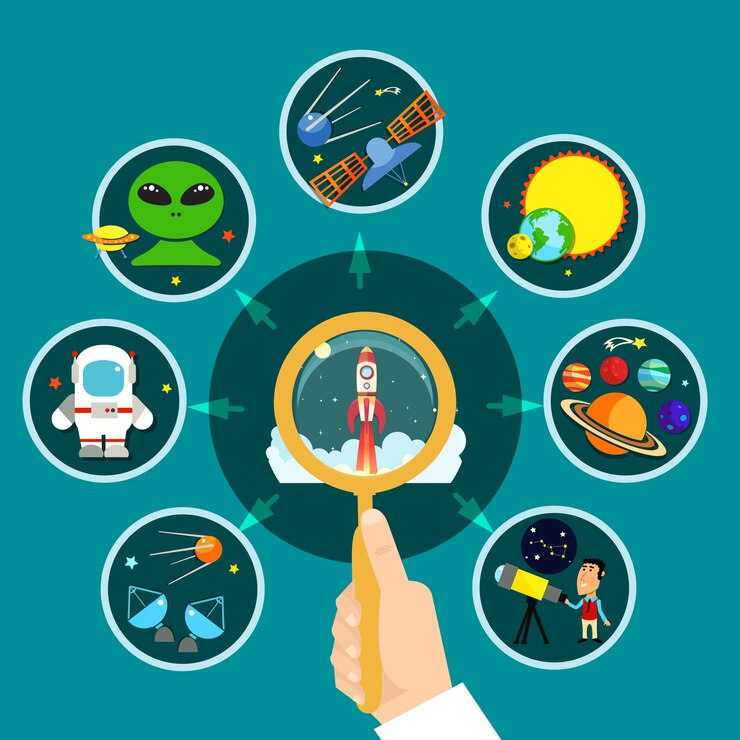How Quantum Computing Is Going Mainstream in 2025
Introduction
Quantum computing, once a domain of esoteric theory and distant dreams, has rapidly transitioned into a transformative force in 2025. With breakthroughs in quantum hardware, increased investments, and real-world applications emerging across sectors, quantum computing is no longer confined to research labs and academic papers. It is entering the mainstream. In 2025, tech giants, startups, and governments around the globe are pushing the boundaries of what’s possible with quantum technologies. From revolutionizing drug discovery to enhancing cybersecurity and optimizing global logistics, quantum computing is beginning to affect industries and everyday life in unprecedented ways.
This article explores how quantum computing is going mainstream in 2025, examining the driving forces behind this shift, current applications, technological milestones, and what the future holds.
What is Quantum Computing? A Quick Refresher
Before diving into its mainstream rise, it’s important to understand what quantum computing actually is. Unlike classical computers that use bits (0s and 1s), quantum computers use qubits, which can exist in multiple states simultaneously thanks to quantum phenomena like superposition and entanglement. This enables quantum computers to process and analyze data at speeds unthinkable for even the most powerful classical supercomputers. Quantum computing isn't just about speed—it's about solving problems that are intractable for classical systems, particularly in areas involving vast combinations or complex molecular structures.
Key Drivers of Quantum’s Mainstream Rise in 2025
1. Hardware Breakthroughs
Quantum hardware has traditionally been the bottleneck for commercial deployment. However, 2025 has seen significant progress:
- IBM’s 1,000+ qubit Condor processor has moved out of the prototype phase.
- Google’s Sycamore 2 has achieved better error correction and operational stability.
- Startups like Rigetti, IonQ, and PsiQuantum are launching quantum-as-a-service platforms.
These developments mean more reliable, scalable quantum machines are now accessible to businesses, researchers, and developers worldwide.
2. Quantum Cloud Services
Thanks to the cloud, access to quantum computers no longer requires owning physical machines. Major players like Amazon Braket, Microsoft Azure Quantum, and IBM Quantum offer quantum computing resources via the cloud. This democratization has opened the floodgates for experimentation, education, and practical use cases in small- and medium-sized businesses (SMBs) as well.
3. Hybrid Classical-Quantum Algorithms
Quantum computers still have limitations, especially around stability and error correction. However, hybrid models that combine classical and quantum computing are gaining traction in 2025. These hybrid algorithms are already solving optimization problems in logistics, finance, and energy, with companies like Volkswagen, JPMorgan Chase, and ExxonMobil piloting hybrid approaches in real-world environments.
4. Government & Industry Funding
Governments across the globe are investing billions into quantum computing. The U.S. National Quantum Initiative, the EU’s Quantum Flagship program, and China's Quantum Internet push are examples of how serious the global race has become. These investments are supporting research institutions, startups, and enterprise adoption alike, fueling rapid mainstream integration.
Real-World Applications of Quantum Computing in 2025
Quantum computing is now delivering tangible value in various sectors. Let’s explore some of the most impactful applications already taking shape.
1. Drug Discovery and Healthcare
Pharmaceutical giants like Pfizer, Roche, and Novartis are partnering with quantum startups to model molecular structures and accelerate drug discovery.
Quantum simulation is enabling:
- Faster protein folding analysis
- Predictive modeling for drug interactions
- Tailored treatments through genomic data analysis
This is reducing the time and cost associated with bringing new treatments to market.
2. Cybersecurity
As quantum systems grow more powerful, so does the threat to current encryption methods. At the same time, quantum computing is a part of the solution.
In 2025:
- Governments and financial institutions are deploying post-quantum cryptography (PQC) standards.
- Quantum random number generators (QRNGs) are enhancing secure communications.
- Startups like QuSecure and ID Quantique are offering quantum-safe cybersecurity solutions.
3. Financial Modeling and Risk Analysis
Quantum computing excels in optimization and probabilistic simulations. Banks and investment firms use quantum algorithms for:
- Portfolio optimization
- Monte Carlo simulations
- Fraud detection
Goldman Sachs and JPMorgan Chase are early adopters, reporting measurable improvements in risk forecasting and trade optimization.
4. Supply Chain and Logistics
Quantum algorithms are ideal for complex optimization tasks like route planning, resource allocation, and demand forecasting. FedEx, DHL, and Airbus are already piloting quantum-enhanced systems to improve operational efficiency, reduce fuel consumption, and predict disruptions more accurately.
The Rise of a Quantum Workforce
The mainstreaming of quantum computing in 2025 is creating a demand for a new kind of talent: the quantum workforce.
Educational Programs
Universities and online platforms now offer specialized degrees and certifications in quantum computing. Courses from Coursera, edX, and Qiskit Academy are making quantum education more accessible than ever.
Developer Tools
Quantum programming is no longer limited to physicists. Tools like:
- Qiskit (IBM)
- Cirq (Google)
- PennyLane (Xanadu)
- Ocean SDK (D-Wave) are empowering software developers to build and test quantum algorithms with minimal prior physics knowledge.
Challenges to Widespread Adoption
Despite the momentum, several challenges still exist:
1. Error Correction
Quantum decoherence and noise remain major hurdles. While error-corrected qubits are becoming more feasible, large-scale, fully fault-tolerant quantum computers are still years away.
2. Standardization
There is currently no unified standard for quantum programming, hardware architecture, or benchmarking, which creates compatibility issues.
3. Cost and Infrastructure
Though cloud-based access reduces upfront costs, quantum computing infrastructure is still expensive to develop and maintain, especially for hardware companies.
4. Public Misunderstanding
Quantum computing is often misrepresented or misunderstood in mainstream media. Clear education and communication are needed to align expectations with current capabilities.
What the Future Holds: Beyond 2025
If 2025 is the year quantum computing becomes mainstream, the next five years will be about refinement, scale, and integration.
- Quantum Advantage in select industries (e.g., logistics, finance, pharma) may become commercially viable.
- More SMBs will leverage quantum-as-a-service models without needing in-house expertise.
- AI and quantum computing will likely converge to form quantum-enhanced AI models, improving everything from natural language processing to autonomous systems.
Ultimately, quantum computing won’t replace classical computing—it will augment it. Hybrid systems will define the next generation of computational platforms, pushing boundaries far beyond what’s currently imaginable.
Conclusion
Quantum computing in 2025 is no longer a sci-fi dream or an academic curiosity. It’s a rapidly maturing field with real-world applications, public and private investment, and growing accessibility. With the combination of powerful hardware, cloud-based tools, and increasing demand across sectors, quantum computing is entering the mainstream. While challenges remain, the progress made in 2025 marks a significant inflection point. Whether you’re a business leader, developer, student, or policymaker, understanding and engaging with quantum computing is no longer optional; it’s essential.








Comments
Post a Comment